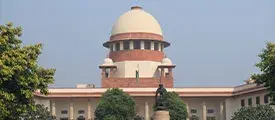By Vikrant Rana, Anuradha Gandhi and Rachita Thakur
The Hon’ble Supreme Court on March 21, 2024, stayed the operation of the Information Technology (Intermediary Guidelines and Digital Media Ethics Code) Rules, 2021 amended on April 06, 2023 (hereinafter referred to as the “Amended Rules”) which empowered the government to identify “fake news” on social media platforms through a “Fact Check Unit” (FCU). The amendment in 2023 allowed the Ministry of Electronics and Information Technology (MeitY) to appoint a FCU.
The Amended Rules of 2023
As a result the MeitY issued a Gazette notification on March 20, 2024 notifying the Press Information Bureau (PIB) of the Ministry of Information and Broadcasting as the Fact Check Unit of Central Government. The said notification was made under the provisions of Rule 3 (1) (b) (v) of the Amended Rules that requires removal of content that is identified as fake or false or misleading by the FCU.
Background – What led to the Supreme Court’s decision?
On April 06, 2023, MeitY had notified the Amended IT Rules requiring that the news identified as fake or false by the Press Information Bureau’s fact check unit needs to be removed from social media platforms which resultantly led to filing of various petitions challenging the said amendment regarding the fact check unit.[1]
This led to filing of writ petitions by the Association of Indian Magazines, Kunal Kamra and others challenging the constitutionality of the said provision before the Bombay High Court after which the Union Government issued an undertaking not to constitute a FCU. The contentions of the petitions questioned the constitutionality of the said provision along with the government’s ability to adjudicate such matters while upholding the principles of natural justice. The petitions further contended that the amendment has a potential impact on the freedom of speech and expression resulting in with excessive governmental control. Additionally, the petitioners also contended that the amendment took away the ‘safe harbour’ as provided under Section 79 of the Information Technology Act, 2000. [2]
As a result of the petitions, the Union government provided an undertaking that it will not constitute its FCU which was then accepted by the Bombay High Court thereby becoming operative stay on the amendment. [3]
January 31, 2024 – Bombay High Court delivers split verdict
On January 31, 2024, the Bombay High delivered a split verdict with regard to the constitutionality of the Amended Rules. Hon’ble Justice Gautam Patel who headed the division bench, struck down the controversial provision regarding the amendment in the IT Rules while the second judge on the bench, Hon’ble Justice Neela Gokhle upheld the validity of the amendment.
As per the Bombay High Court Rules, when an impasse is reached, the matter is to be placed before a third judge for adjudication. Considering the divergent views in the split verdict, the bench directed its Registry to place he matter before the Hon’ble Mr. Chief Justice Devendra Kumar Upadhyaya for referring it to a third judge. On the same day, the Centre, represented by the Solicitor General of India informed the Court that the FCU would not be notified for another ten (10) days i.e. February 09, 2024.
February 2024 – The Third Judge’s refusal to grant interim stay
Since the split verdict was delivered by the Bombay High Court, the case was to be heard fresh by a third judge whose opinion would bring out a majority verdict. However, the third judge Hon’ble Justice Chandurkar refused to grant an interim stay on the Amended Rules. [4]
March 20, 2024 – Ministry of Information and Broadcasting notified PIB as the Fact Check Unit
The Government of India through the Ministry of Information and Broadcasting on March 20, 2024 notified Fact Check Unit under the Press Information Bureau as the Fact Check Unit of the Central Government with a stated objective of acting as a deterrent to creators and disseminators of fake and false information. [5]
The Supreme Court
The Hon’ble Supreme Court’s Bench comprising of Hon’ble Chief Justice of India DY Chandrachud and Hon’ble Justices JB Partiwala and Manoj Mishra, opined that the petition challenging the Amended Rules implicates core values impinging on freedom of speech which is protected by Article 19 of the Constitution. The bench noted and based its decision on the fact that the Centre had assured the High Court that FCU would not be notified until the petitions challenging Rule 3 (1) (b) (v) of the Amended Rules are decided by the High Court, however, the bench declined to make any comments on the merits of the case as the same is pending before the Bombay High Court.
[1] Rule 3(1) (b)(v) of the Information Technology (Intermediary Guidelines and Digital Media Ethics Code) Rules, 2023
[2] Section 79 of the Information Technology Act, 2000 exempts social media intermediaries from liability for any third party information, data or communication link hosted by them.
[3] https://internetfreedom.in/bombay-hc-delivers-split-verdict-in/
Related Posts
Information Technology (Intermediary Guidelines and Digital Media Ethics Code) Rules


